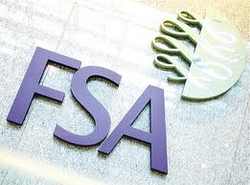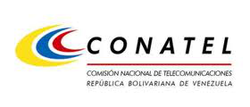Updated: Nov. 26, 2012 (Initial publication: Nov. 26, 2012)
Breaking news

Updated: Sept. 19, 2012 (Initial publication: Jan. 18, 2012)
Sectorial Analysis

Translated summaries
The translated summaries are done by the Editors
and not by the Authors.
ENGLISH
The Autorité de régulation des communications électroniques et des postes (ARCEP — French telecommunications and postal regulator) issued an injunction on November 4, 2010, ordering Numéricâble to sign a contract with France Telecom according to the latter’s new framework for accessing its telecommunications infrastructure for the installation of fiber optics. Failure to have complied within the imparted timeframe caused Numéricâble to be fined 5 million Euros by the ARCEP on December 20, 2011.
FRENCH
L’Autorité de régulation des communications électroniques et de la poste (ARCEP) avait, par une décision du 4 novembre 2010, fait injonction à Numéricâble de contracter avec France Telecom selon la nouvelle offre de celui-ci pour l’accès à l’infrastructure de génie civil pour la fibre optique. Faute de l’avoir fait dans les délais, Numéricâble est condamné par une décision de l’ARCEP du 20 décembre 2011 à une amende de 5 millions d’euros.
SPANISH
La Autorité de régulation des Communications électroniques et des postes (ARCEP – el regulador francés de telecomunicaciones y servicios postales) emitió una mandamiento el 4 de noviembre del 2010, ordenando Numéricâble que firmara el contrato con France Telecom de acuerdo con el nuevo marco desarrollado por el último para acceder a la infraestructura de telecomunicaciones para la instalación de fibras ópticas. La inhabilidad de cumplir con este mandamiento en el tiempo definido resultó en una multa de 5 millones de Euros para Numéricâble de parte de la ARCEP el 20 de diciembre del 2011.
ITALIAN
Il 4 novembre 2010, la Autorité de régulation des communications électroniques et des postes (ARCEP — l’Autorità francese di regolazione in materia di telecomunicazione e servizi postali) ha emesso un’ingiunzione, ordinando a Numéricâble di sottoscrivere un contratto con France Telecom secondo l’offerta di quest’ultima per l’accesso alle infrastrutture per l’installazione della fibra ottica. Il 20 dicembre 2011, a ragione del mancato rispetto di tale ordine, Numéricâble è stata multata per 5 milioni di euro dall’ARCEP.
ARABIC
الّسُّلطة التنظيمية للاتصالات الإلكترونية و الخِدمة البريدية(*) في قرار 4 نوفمبر 2010, دعت علا شركة نُمريك كابل(مشغل فِرنسٍي خاص) بالاتصال بالمؤسسة الفرنسية للاتصالات(فرانس تيلكوم)* وفق الطَّرح الجديد للوصول الا الهياكل الاساسية للهندسة المدنية للألياف البصرية. هذه لم تقوم بنفذ هذا القرار في الوقت المُحدَّد لذا حكمت علا نمريك كابل في قرار 20 ديسمبر 2011 بِدفع غرامة قدرها خمسة مليون يُورو.
*(ARCEP) السلطة التنظيمية الاتصالات الالكترونية والخدمة البريدية:
*Numéricâble : نمريك كابل
*France Telecom : فرانس تيلكوم
....................
Other translations forthcoming.
Updated: July 17, 2012 (Initial publication: July 5, 2012)
Breaking news

Updated: July 9, 2012 (Initial publication: June 30, 2012)
Breaking news

Updated: June 8, 2012 (Initial publication: June 3, 2012)
Breaking news

Updated: Jan. 18, 2012 (Initial publication: Jan. 18, 2012)
Contributions

